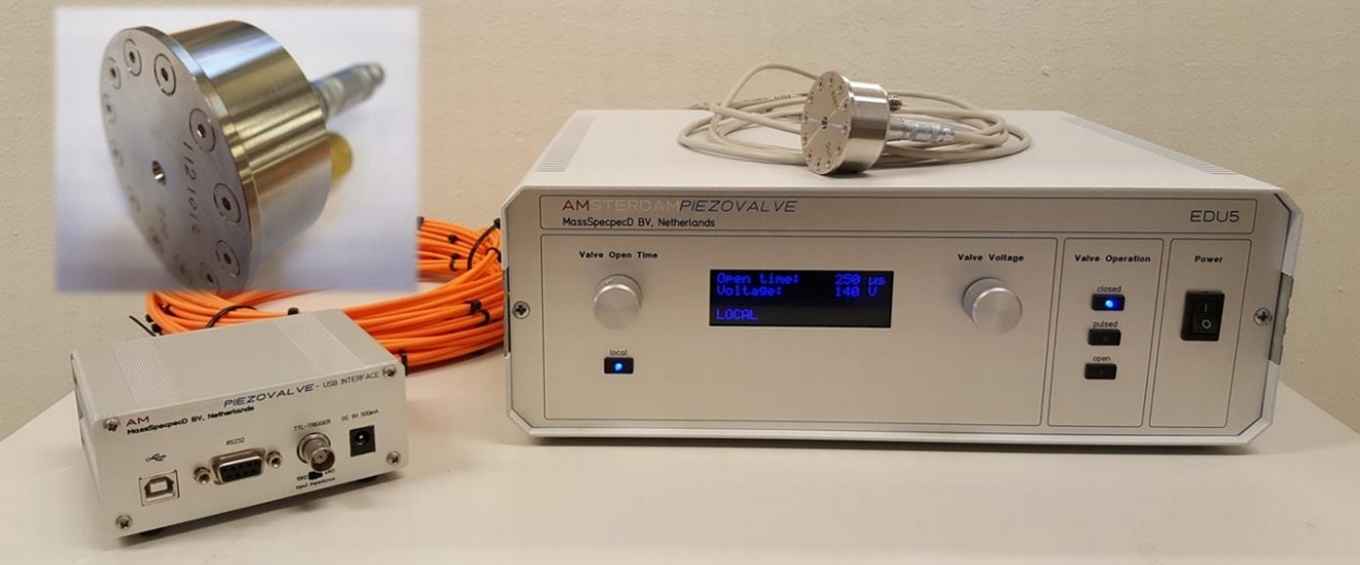NWO-KIEM grant for enhancing Amsterdam Piezo Valve
28 August 2017

In recent years novel high-repetition rate (1-5 kHz) laser systems have been developed for molecular and materials analysis and research. This has stimulated the development of devices that can generate equally high-repetition pulsed beams of these molecules and materials in the gas-phase.
A particular successful device is the Amsterdam Piezo Valve (APV), originally developed at LaserLaB Amsterdam. In 2015 Maurice H.M. Janssen, former Professor of Molecular Photodynamics at Vrije Universiteit Amsterdam founded the company MassSpecpecD to produce and market the device.
The APV is currently being used by more than 50 academic and large-scale laser facilities worldwide enabling novel research and development in physics, chemistry and photonic sciences.
Elevating temperature
Presently, the APV operates under room temperature conditions. The KIEM funding will be used to extend this to temperatures up to 200 degrees Celsius. This will enable researchers to employ and study non-volatile molecules that do not have sufficient vapor pressure at room temperature. It will facilitate the (spectroscopic) study of a huge range of molecules employed in pharmaceuticals, food and fragrance, agrochemicals, sunscreens and other (advanced) materials. MassSpecpecD already received many requests from present and potential customers to operate the APV at higher temperatures.
The Molecular Photonics group of Prof. Wybren Jan Buma, part of LaserLaB Amsterdam, will provide expertise and research facilities for the proposed development. Getting access to high-end pulsed valve technologies and the availability of a heatable APV will considerably extend the research capabilities of the Buma group. The KIEM project thus benefits both the industrial and the academic partner.
About KIEM
KIEM, short for Knowledge Innovation Mapping, concerns short-term initiatives in which SMEs together with universities and/or HBO-institutions can tackle a practical research question. It is an instrument of NWO to promote cooperation and transfer of knowledge between universities and companies.